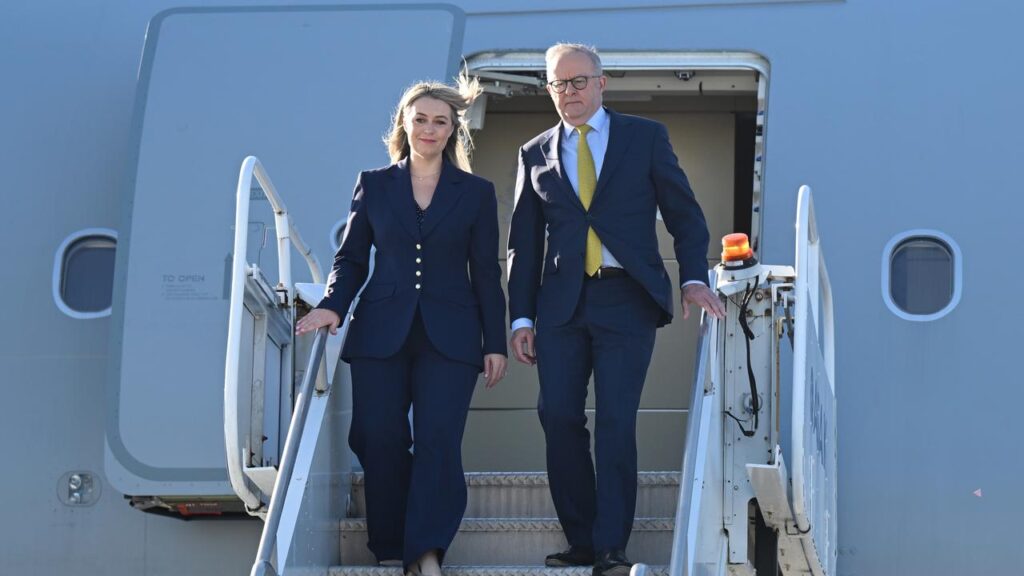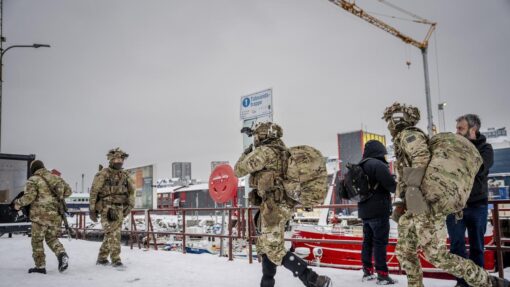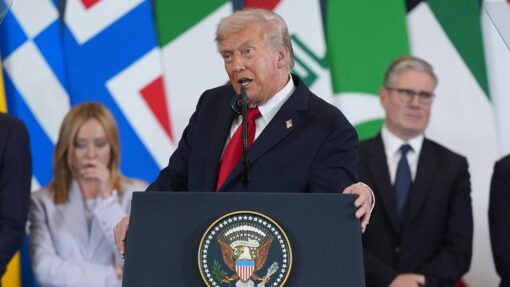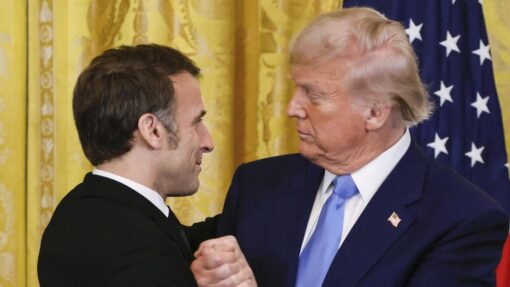Palestine statehood a ‘point of contention’ in US ties
Kat Wong |

Australia has been urged not to ignore threats of “punitive measures” from top Republicans, as the prime minister lands in the US for one of his most important diplomatic ventures.
Anthony Albanese arrived in New York City on Sunday morning Australian time ahead of a long-awaited United Nations General Assembly meeting where Australia, Canada, France and the UK will recognise the state of Palestine.
But hours before touchdown, a group of top Republican congress members and allies of Donald Trump issued an open letter to the leaders of those nations warning recognition “may invite punitive measures”.
“This is something that very well could be a point of contention between the Albanese government and the Trump administration,” United States Studies Centre director Jared Mondschein told AAP.
“It should not be ignored.”
But that doesn’t mean Australia cannot stand its ground.
The UK’s foreign policy – like Australia’s – has begun to diverge from the US after decades of generally moving in lock step with the world power.
UK Prime Minister Keir Starmer has been able to work through his differences with the US president.
“I would not be surprised if Prime Minister Albanese and President Trump are able to overcome their differences of opinion on this matter too,” Mr Mondschein said.
Mr Albanese is hoping to secure his first face-to-face meeting with Mr Trump, though talks have not yet been scheduled.
Some speculated the two could hold discussions on the weekend before the UN event, but this was dispelled when the president announced he would attend the funeral of right-wing American commentator Charlie Kirk on Sunday in Arizona.

The prime minister was due to meet with the US president in June during the G7 summit, but was left wanting when Mr Trump departed the event early to intervene in escalating Middle East violence.
In the months since, a bilateral meeting has arguably become a lesser priority for Mr Albanese.
The US in August spared Australian goods from a tariff hike, leaving its products at the baseline 10 per cent – which is the lowest rate levied against any American trading partner.
But there is still much to discuss that extends beyond the bilateral US-Australia relationship, like the security environment and strategic competition in the Pacific.
“If Australia and the United States – who are the closest of allies – are able to get aligned on this, then that will give momentum to other allies in the region,” Mr Mondschein said.
Stepping onto the tarmac at John F Kennedy International Airport in New York, Mr Albanese emphasised the importance of Australia’s role on the world stage.
“What we want to see is increased peace and security and stability around the world,” he told reporters.
“We are a country that play a positive role in our region, in the Pacific, as well as of course … our traditional allies such as our Five-Eyes partners including the United States and the United Kingdom.”

The letter from Republican members of Congress, including former presidential nominee Ted Cruz, claims the recognition of Palestine would undermine prospects for peace and reward terrorism.
“Proceeding with recognition will put your country at odds with long-standing US policy and interests and may invite punitive measures in response,” it read.
Their statement comes days after a UN inquiry branded Israel’s offensive in Gaza as an act of genocide against Palestinians.
Australia has condemned the denial of aid and killing of civilians in the territory.
Since October 2023, Israel’s military campaign and throttling of aid has killed 65,000 Palestinians and left 641,000 people at risk of catastrophic levels of starvation, local health ministry and UN sources have found.
Israel’s recent offensive began after designated terror group Hamas killed 1,200 civilians and took about 250 more hostage.
AAP


